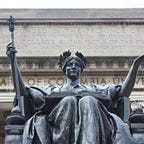Myanmar Voted for Democracy, But Not Without Its Observers
Selina Cheng
Phyu Thi got out of bed at 4am the day the world turned its attention to Myanmar and the third general election in its history on Sunday, November 8. Today, her job was to be an election observer. For many twenty-somethings in Myanmar, this year will be their first turn to vote — but they know casting a ballot does not necessarily bring democracy.
“This election is our only hope, and we cannot afford to lose hope again, so we cannot allow the election to be unfair,” Phyu said. “The mere existence of observers will impact the fairness.” The 23-year-old Burmese graduate student explained her participation via a series of Facebook messages, in a country where Internet connection only functions sporadically. “Moreover, this election will be the most interesting that ever happens in my life.”
As part of the generation under 24 years old, which makes up 44% of the population in Myanmar, Phyu Thi was born under what was reputedly one of the most repressive regimes in Asia. They grew up knowing that “The Lady,” the affectionate nickname for Aung Sang Suu Kyi, the military regime’s main opposition leader, spent two decades in house arrest despite winning the 1990 general election in a landslide. The generation X of Myanmar came of age as the so-called Saffron Revolution rocked the country in 2007, leading to the official end of the military regime the following year.
Although general elections were held in 2010, the new constitution still required a quarter of the legislature’s seats to be reserved for military officers, and the main opposition National League of Democracy boycotted the event. This year’s election would therefore be the first time in 25 years that people in Myanmar felt they had a choice to their own government, so they tried to make sure it wouldn’t be a sham by monitoring the elections themselves.
On the election day, Phyu Thi arrived at a polling station at 5:45am, in the Pabedan township of Yangon, the former capital of the country, to oversee its opening at 6 a.m. She was working for a local non-governmental group called Election Education and Observation Partners.
In the days leading up to the election, over 10,500 locals signed up with Burmese non-governmental organizations to be observers. The European Union and the U.S. Carter Center observation missions also took up the job as foreign observers to track campaigning activities and the polling. Phyu Thi was one them.
Patient crowds were already lining up outside the stations eager to cast their ballots when Phyu Thi arrived. She made sure polling officers were in their position and everything was in order. She visited two other polling stations before heading back to the NGO’s office to take calls from observers reporting on incidents such as candidates trying to force people to vote for his party, or uncompliant candidates getting into fights with polling officers. By 3:30pm, she went back to the polling stations to monitor ballot counting, which continued until almost midnight. She returned to the office to work on election data until late night, got a few more calls from the Magwe region, which complained about a blackout that occurred during ballot-counting.
At 2am, Phyu Thi and her colleagues gathered reports of unusual incidents and prepared a press release for the next day. She didn’t get off work until 4pm the day after the elections, but she was relieved to learn that her hard work paid off — no major cheating incident was reported.
Different from Phyu Thi, who is from the 68% majority of ethnic Barmar people, Min Hnaung Htaw is from Mon, a minority from the southern shore of the country which takes up a mere 2% of the population. The 29-year old heads the Ethnic Youth Networks Group, and aims to improve ethnic young people’s place in the country’s politics by surveying their participation in this year’s election.
Minority youth who volunteered for his organization surveyed the ethnic voters and candidates’ turnout on the election day in ethnic states like Mon, Kachin, Chin, Rakhine and beyond, and recorded complaints received from polling stations.
Min Hnaung Htaw’s grandfather was a Mon leader and politician, who introduced his grandson to ethnic leaders in other regions when they paid each other visits. As a result, Min Hnaung Htaw has developed a keen interest in politics, as well as a close network of ethnic politicians around him. He said the organization was originally founded by these ethnic leaders, but they handed him the job as chairman in 2012, when the founders felt disconnected from Myanmar politics after spending decades in jail.
Although one-third of the country is made up of ethnic minorities, they are still under-represented in their own ethnic states, even when the electoral process has become much more democratic than before. “This year we only have 8% of ethnic candidates running for the upper house in the ethnic states, and 12% in the lower house,” said Min Hnaung Htaw.
— —
